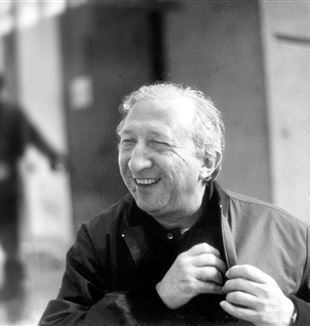
Fr. Giussani, reformer or revolutionary?
A whole life dedicated to showing " the freshness and original fascination of the Christian life." Monsignor Camisasca remembers the founder of CL on the centenary of his birth.Originally published on ilsole24ore.com, October 12.
On the occasion of this commemorative year of the centenary anniversary of Fr. Giussani's birth, I share some reflections from my own recollection of him.
Fr. Luigi Giussani was undoubtedly a great reformer. Although he hardly ever used this word, he in fact tried throughout his life to show the original freshness and fascination of the Christian life. He discovered that Christianity is an event, that is, an encounter with a present person charged with a mysterious attraction capable of completely changing the orientation of life. Whoever encounters Jesus becomes truly human. They receive an existence that is a hundred times more intense and true: in the realm of knowledge, affection, self-realization.
Giussani could not be satisfied with a Christianity reduced to a set of truths to be believed or rules to be obeyed; neither doctrine nor morality was enough for him. Instead he saw how much the Church of his time had lost that original ability to present the Christian event in the full breadth of its promise. For Giussani, Christ was the most convenient thing of all time for the person. "The contents of faith need to be embraced through reason. That is, they should be presented in their capacity to improve, illuminate, and enhance authentic human values." It was therefore "a matter of re-proclaiming Christianity as a present event, humanly interesting and convenient to the person who does not want to renounce the fulfillment of their expectations and the unrestricted use of the gift of reason." Thus, without planning it, and with his own highly original vision and experience, Giussani followed in the footsteps of those who during the twentieth century had tried to bring the Christian proposal out of the shallows into which it had situated by bourgeois individualism, moralism, and the intellectualism of modern theology had placed it.
The school of Venegono, where Giussani studied during his seminary years, brought him into contact with Scheeben and Möhler, with Guardini and the liveliest currents of the theological and liturgical renewal of the century. There was thus a need to rediscover the path by which Christian life could show itself as something profoundly beautiful, capable of filling the aesthetic thirst of contemporary man, but at the same time powerfully true, capable of responding to the deepest expectations of reason. Giussani accepted all the challenges of modernity without any inferiority complex, without the slightest doubt that Christianity was capable of showing its relevance even in the face of new philosophies or new horizons revealed by contemporary science.
The founder of Communion and Liberation was judged by some of his contemporaries within the Church as a revolutionary, as subversive. On the contrary, he had a very deep sense of tradition, but he was not a traditionalist. That is, he felt the urgency to rediscover the Christian tradition in all its capacity to illuminate the present. His reform consisted in focusing on what was essential. Put aside outdated modes and convey the living heart of Christianity. This consists first of all in knowing God as a Father. That is why God became man, to reveal His paternity to us through the life of his Son, His mercy, His will to redeem all our misery and to raise us up.
Giussani was a great connoisseur of man. He placed at the centre the discovery of the
deepest dynamisms of life. All of the actions of a person pursue a good which they are attracted to, and at the same time, they must register an insatiability. It is the restless heart that Augustine spoke of. "All things bear the writing: further on," writes Montale in one of his poems, often quoted by Giussani. The summit of reason is to recognize this ever new desire. The earth-shattering announcement that God is a present man addressed itself to this openness of the mind and heart.
Recalling the figure of Fr. Giussani on the 10th anniversary of his death, Pope Francis said: "I am grateful to Don Giussani for different reasons. The first and more personal is the good that this man did for me and for my priestly life, through reading of his books and articles. The other reason is that his thoughts are deeply human and reach the most intimate yearning of mankind."
Bishop Emeritus of the Diocese of Reggio Emilia and Guastalla#100Testimonies